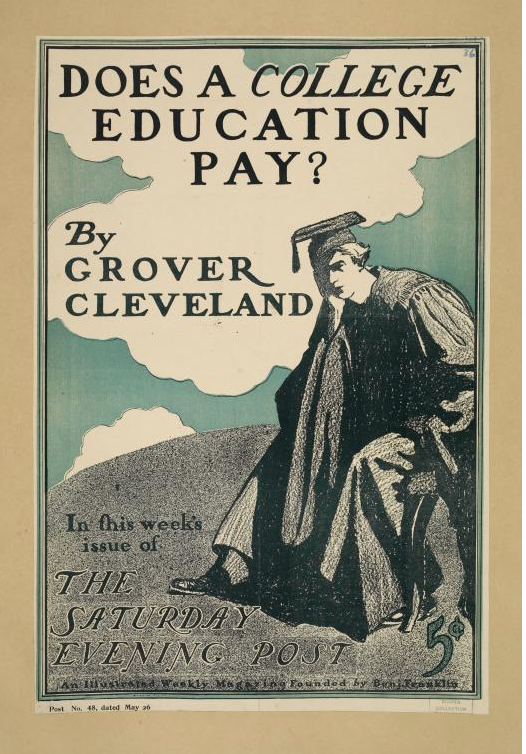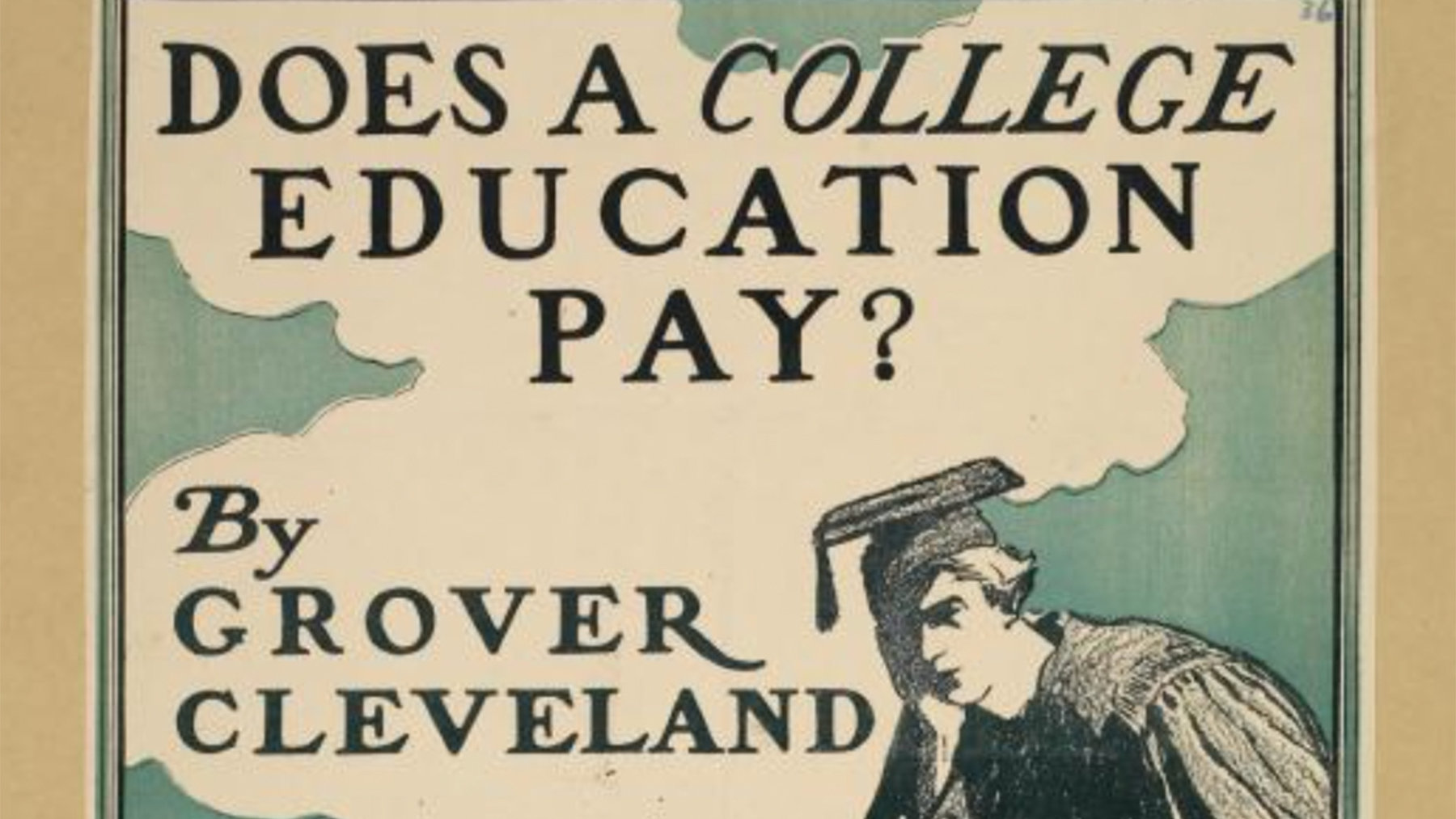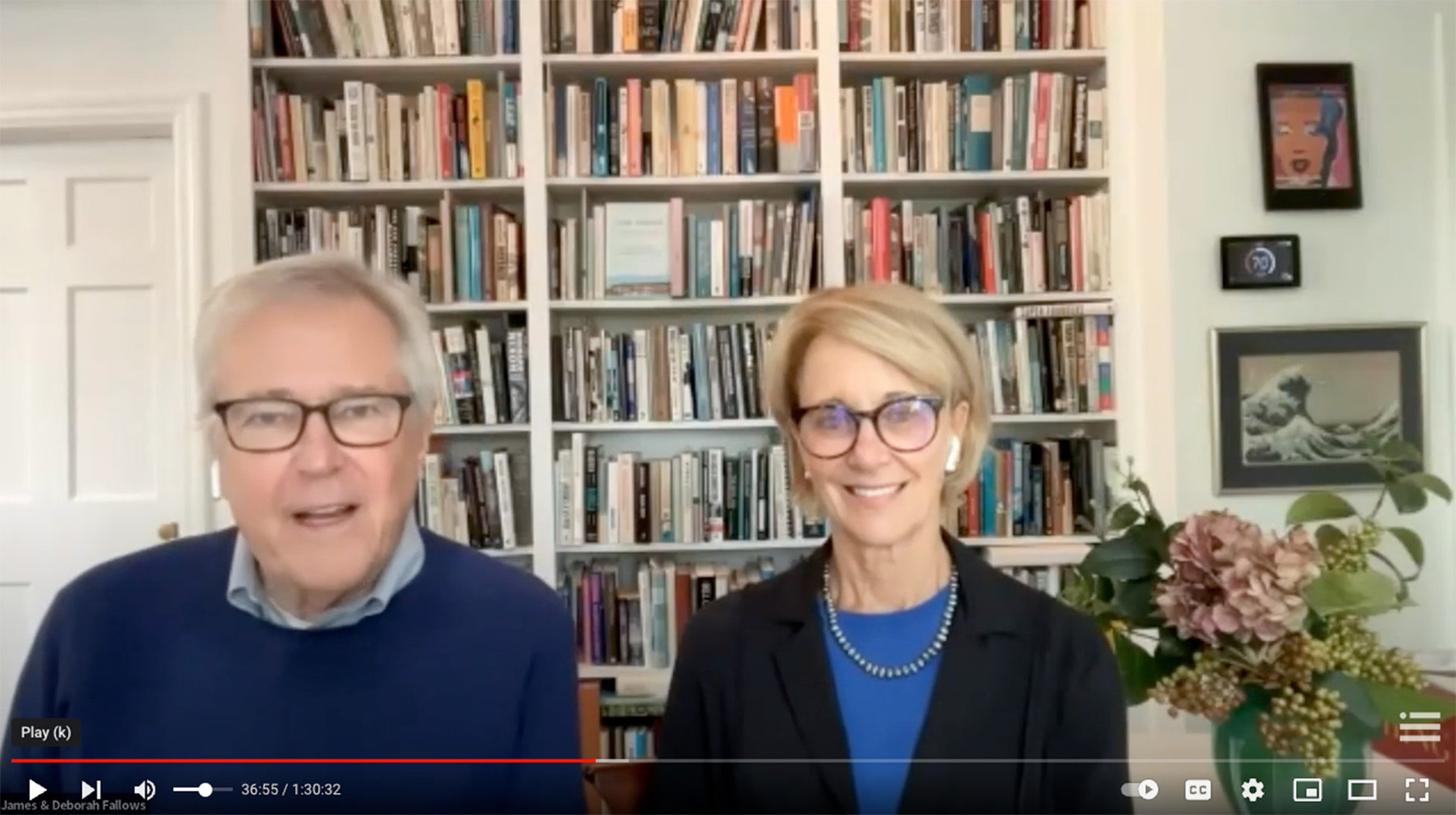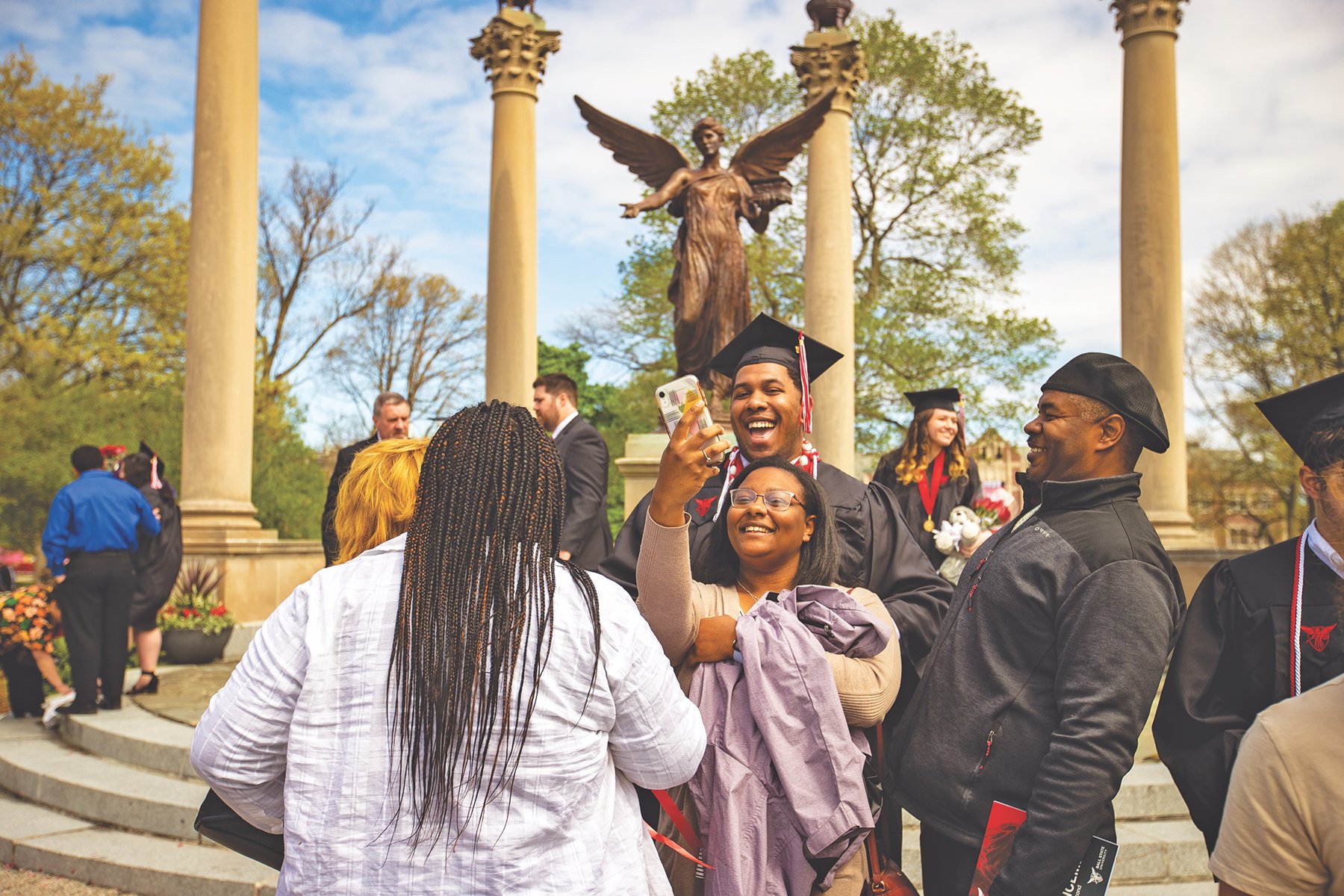Last week, as part of the American Futures series here, I wrote two pieces about Maine Maritime Academy (MMA). The second post recounted a Twitter exchange I had with a dean of students from a liberal-arts college, in which this person seemed (to me) to be arrogantly dismissive about the kind of career-oriented education provided at places like MMA, and extravagantly self-satisfied and sanguine about the kind of education that liberal-arts colleges provide. She tweeted: “Discovery, empathy, adaptability is goal of broad-based education, prepares students for life, learning & jobs known & unknown.”

I noted that this comment made my blood boil. (“I resented – on behalf of Maine Maritime Academy and its students and faculty, past and present – the smug, arrogant condescension of her reply.”) And I invited readers to weigh in with their views on the question I was left with: “I wonder what makes some people at liberal-arts colleges so dismissive of, and condescending toward, institutions that actually train people for careers.” I noted the reply of a friend, a professor at another liberal-arts college, who wrote of the aversion many of his colleagues have to any education that smacks of providing “skills.” Apparently, that would be too déclassé.
I received scads of emails, many of them quite lengthy. When I copied the most interesting of them into a Word document, it totaled 46 pages. I wish I could simply copy all of them into this space for you to read. Alas, the overlords here would resist that. So, I’ll offer samples from a bulging mailbag. (Responders, all of you: many thanks.)
Many readers were eager to make the point that an education at maritime academies is incredibly broadening, anything but narrow, and leads to experiences unlike anything most liberal-arts grads will ever get. Here, for example, is a reply from a 1991 graduate of MMA, whose father also is a graduate from the class of 1966 there. He used the dean’s comment to organize his reply:
I’ve spent valuable time in more countries than I can count and have immersed myself in their cultures. I can honestly say it has been a direct influence on the man I have become.
Discovery?…. Yup. Pyramids of Giza, Pompeii, St. Petersburg, Chichen Itza Pyramid, Singapore, Somalia, Djibouti, Cape Town, Mombasa, Iraq, Kuwait, Dubai, Alexandria, Egypt, Palma De Mallorca, Costa Rica, Panama, Mexico, Solomon Island/Gilbert Islands and Bikini Atoll in the South Pacific, Guam, Saipan, South Korea, Indonesia, Vancouver, Montreal, Germany, Belgium, England, France, Canary Islands, circumnavigations of the globe, and onboard Woods Hole Oceanographic Institute vessels for the filming of several National Geographic televised documentaries.
Adaptability? Yup. Find yourself in a foreign country, left to your own devices, and adaptability becomes 2nd nature with all due haste. Find yourself in a war zone or trying to clear customs in a country hostile to the USA, and you find yourself able to make quick decisions that carry real consequences without hesitation.
Empathy? Yup. Seen more famine and 3rd-world living conditions than I’d like to remember. People in the USA who complain they “don’t have,” have no idea …..
These opportunities are there for any student of Maine Maritime Academy who enrolls in the USCG license program. That license is a ticket to the world, the likes of which cannot be found in a liberal-arts college. Nothing prepares you for life more than living it and seeing the wonders of the world firsthand.
A similar reply (I received many like this) from someone who went to another of our seven maritime academies in the United States:
You rightfully point out that there are liberal-arts requirements including history, foreign language, and humanities courses that need to be fulfilled to get the BS degree. I would also point out that part of the maritime-academy experience is time out at sea, with visits to foreign ports. As an example, at USMMA [the U.S. Merchant Marine Academy], my alma mater, we went out to sea for a full year on regular merchant vessels. Before I graduated, I visited 25 countries on 5 continents while sailing on 4 different vessels. What you learn about life, sailing on a ship for a year with a bunch of “seasoned” shipmates, is much different from the sheltered, study-abroad nonsense some college students opt for these days. I have to admit, the local museum was not always the first stop when going ashore, but I got a good sense of what a country and its people were like.
And from a 2006 MMA grad who is now “aboard a small ship, floating in the Atlantic”:
I graduated with an engineering degree and I have never regretted my decision to attend MMA. There is proof in the pudding that “focused” colleges prepare their students for success. At a time when college grads are having a hard time getting jobs out of school and paying back their student loans, more high school graduates should be looking harder at MMA-type schools. I had a job making about $80,000/year within one month of graduating and have been making over six figures since I was 24 years old. At least for the merchant-mariner grads, this is standard. I am not just one of the lucky few. I have no idea why someone would pay a high tuition to get a “general education.”
Echoing that same sentiment about the kind of preparation one can get at MMA for a lucrative career, a 2004 graduate with a degree in Marine Engineering Operations, wrote:
I’m currently working six months out of the year for an employer who pays me obscene amounts of money. The remainder of the year, I fish and ski in Montana. I could leave this employer at any time and get hired immediately from numerous competitors, probably for more money.
The reputation of MMA is all I’ve ever needed to get a job. Tell Human Resources you’re from MMA and you’ve already got your foot in the door. I’ve had employers hire classmates on the spot simply because we attended this little college. It’s incredible the weight this institution carries in numerous industries.
An MMA graduate, whose son is now a senior there, wrote this, obviously annoyed by the college dean’s Tweet suggesting the presumably superior adaptability of liberal-arts grads:
I graduated from MMA in 1986 as an engineer. I am now the owner of a printing and mailing company employing over 30 people. Pretty adaptable!
A roommate of mine graduated in 1986 as a Deck Officer. He went on to be a Captain on a ship and is now an elder-law attorney. Pretty adaptable!
My brother’s roommate graduated in 1985 as an engineer and is now a plastic surgeon. Pretty adaptable!
Another classmate of my brothers is an eye doctor. Pretty adaptable!
Oh, yeah, I almost forgot, a former graduate went on to become the Governor of the State.
I know I’m only a graduate of MMA but — geesh! — all that sounds like adaptability at its finest to me!
Picking up a slightly different theme, a very prominent professor of microbiology from a major-league research university, someone who spent a couple of months on a sabbatical at MMA in part because of its high-quality library (and, he admits, its “magnificent view”) sent this comment:
I have always been impressed with how grounded the students at MMA are that I have met. They have special “competencies,” like being able to fix things which would be a mystery to 99% of the students on [my own] campus.
Someone close to me, who graduated with a music degree from a small liberal-arts college (let’s not say he’s one of my sons, but . . . ), wrote this to me after seeing my second piece on MMA:
When I tried to do a music-business independent study at [the liberal-arts college he attended], the dean turned down my proposal because it would be teaching “practical skills,” which, apparently, is something they don’t allow at the school. What the [hell] is that all about?! And they wonder why [that college’s] graduates don’t earn enough money to donate to the college?! Maybe they’d have more than a pitiful endowment if they taught students some practical skills so that their graduates could earn some money and be able to give back to the college! But Glenn [a professor in the music department there] and I did the independent study anyway. We just had to frame it as “history of the music business.” Trickery, but it worked. I loved that place and it was the best college for me, but, man, that side of liberal-arts education is just so closed-minded. [Well said, young man. Your Dad approves!]
That liberal-arts-college dean is clearly just an elitist who’s insecure about her value in the world.
Another person who is not an MMA grad, or affiliated with it in any way, had this to say:
I have worked over the years with a number of their [MMA] graduates. I have found them uniformly excellent to work with — competent, responsible, and genuinely nice folks. I work for an electric utility, and work with, work for, and have had people working for me, from a range of schools and backgrounds, including basically all of the Ivies. MMA graduates are at least as good, and in most cases I would prefer them to, people from any of the “name” schools. . . .
I had a conversation with a friend who is an English professor at the local university. She was explaining that she did not understand how anyone in society could claim to be educated without having read, at least, all of Shakespeare. I asked how anyone could claim to be educated without understanding how a light bulb works.
Yes, I agree. An educated individual needs to have a background in the liberal arts. As you pointed out, MMA graduates (and all university graduates in engineering, math or the sciences of which I am aware) have some requirements that give them exposure to this. Conversely, how can a liberal-arts graduate claim be be educated without some basic understanding of and appreciation of, chemistry, physics, biology, and math (especially statistics)? How can you apply critical-thinking skills to the issues facing today’s society (global warming, modern-day medical costs etc.) without having a background to even understand the issues? . . .
Maybe the inchoate issue is how do we define an educated individual in today’s society? That might well be a discussion worth pursuing.
Some respondents offered diagnoses as to why people at liberal-arts colleges seem to feel superior to, and dismissive toward, institutions that are more career-oriented. (I’ve highlighted the diagnoses in the several following replies.) One person, often quoted by name on this blog, wrote:
I am not one to knock a liberal education, but one must recognize that when liberal-arts colleges look down on every other form of education as “vocational,” the anxiety arises from concerns about money. The big money generators are STEM courses [Science, Technology, Engineering, and Math] which receive government grants and lots of full-tuition foreign students. By contrast, the humanities are being down-scoped in a tight-budget environment, with many colleges reducing their foreign language courses, etc. The resultant attitude is that of the shabby genteel who maintain their dignity by asserting their social superiority over the parvenu.
And this:
Your post . . . got me thinking about the question you asked: “I wonder what makes some people at liberal-arts colleges so dismissive of, and condescending toward, institutions that actually train people for careers.”
I think the answer might simply be defensiveness: those deans are like an emperor with no clothes. Private liberal-arts schools, like the one I went to, justify extremely high tuition by claiming that they are “teaching students to think.” But MMA proves that you can learn the arts and sciences and also a vocation. They’re not mutually exclusive! My college had an almost phobic aversion to “pre-professional” study while I was there, as if it would sully some Platonic ideal of a pure learning experience. But if one of the goals of college is to learn about the world, then hands-on work experience is surely as valuable as any academic course. MMA shows that there is plenty of time in four years for both.
A woman who is herself a graduate of a master’s-degree program at a small liberal-arts college in Pennsylvania and says her son, a whiz at science and math, seems headed not toward a liberal-arts college but toward “a technical institute to specialize in programmable logic circuits, or possibly computer engineering, or maybe electrical engineering,” wrote this:
He isn’t certain yet which type of school or which major, and as I help him investigate his options, I have had to face my own prejudices against vocational education.
The biggest question this has raised for me goes beyond the school question. My question is this: Why is a vocation one prepares for at a liberal-arts college or at a university considered more valuable than a vocation one prepares for at a vocational school, technical institute, or trade school? If a person is truly following his or her calling (because, after all, that is what a vocation should be), should we not honor that, regardless of the string of letters behind his or her name? That may be the deeper underlying question that liberal-arts schools need to ask themselves: Are we truly encouraging students to find a vocation, or are we just filling their minds with useless knowledge, knowledge that in some cases might actually backfire and teach them to hate certain disciplines? (Don’t ask my opinion of science after being forced to struggle through the required two courses in college!)
I think the answer to your question about liberal-arts attitudes can be summed up in one word: Pride. Every person wants to be validated, to think that somehow they are better than someone else. Nobody wants to be the low man on the totem pole, so they scramble to find a way to elevate themselves over everyone, or at least someone. It’s the same answer as the answer to so many issues of injustice: Pride.
I have no idea if liberal-arts colleges or universities will ever admit the value of vocational education, but I do know this: I will not allow my pride to stand in the way of my son pursuing excellence in his calling, even if that means his foregoing the liberal-arts college and attending a technical institute or a trade school. My bias against those types of educational institutes, and my silly thinking that somehow liberal-arts colleges were superior, has been forever shattered.
Wouldn’t it be nice if more people could see the value in vocation?
As if guided by that person’s open-mindedness, other respondents were overt peace-makers, not eager to push for the supremacy of either career-oriented or liberal-arts education. A prominent professor of writing at MMA, noting that graduates from there had become surgeons, veterinarians, rear admirals, CEOs of large corporations, owners of successful businesses (and, yes, governor of Maine) wrote:
College, ultimately, is all about the dynamics between students and teachers. Sparks fly at MMA and that’s what keeps most of us here — motivated, “hungry” students, and professors with diverse backgrounds who care deeply about their students and their futures. I’m certain many, many colleges throughout the world can say the same thing about their own institutions. . . .
Every college can boast wonderful grads who have achieved noteworthiness, but most people think MMA turns out engineers and captains who stay that way for life. Far from it! Their lives take magnificent twists and turns, and this college has been part of their preparations for those wonderful roller-coaster moments in their personal lives and their careers.
In that vein, and last, but not least, the following response wins the ultimate peace-making award here, the Jimmy-Carter/Menachem-Begin/Anwar-Sadat Trophy for tolerance, open-mindedness, and charity toward all:
Different strokes for different folks. Let’s agree to support different kinds of postsecondary education: community colleges, technical/ agricultural/fine-arts colleges, and liberal-arts colleges. Let’s try to insure a suitable place for all high school graduates who want to continue their education. May they all find occupations they like.
I sincerely hope that Maine Maritime Academy thrives. And Connecticut College and Pomona College too.
Amen.




